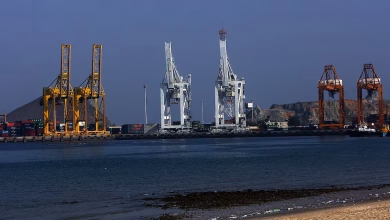
The Nigerian National Petroleum Company Limited (NNPC Ltd.) on Tuesday announced a critical breakthrough in the construction of the $2.8 billion Ajaokuta-Kaduna-Kano (AKK) gas pipeline project, confirming that contractors have successfully completed the complex River Niger crossing.
The announcement was made via the company’s official X (formerly Twitter) handle and was later confirmed by NNPC’s Group Chief Executive Officer, Bayo Ojulari, during his keynote address at the Nigeria Oil and Gas Energy Week Conference in Abuja.
The AKK pipeline a 614-kilometre, 40-inch linear gas pipeline stretching from Ajaokuta in Kogi State to Kano is one of Nigeria’s most ambitious energy infrastructure projects. It is designed to enhance domestic gas distribution, boost power generation, and catalyze industrial development along its corridor, particularly in northern Nigeria.
Crossing the River Niger has been one of the most technically and commercially demanding sections of the pipeline, and its successful completion marks a significant step toward project delivery.
“This has been one of the biggest challenges on the AKK project,” Ojulari told stakeholders at the conference, themed ‘Accelerating Global Energy Progress Through Investment, Partnerships & Innovation’. “There were tough technical hurdles, and we had to bring in specialized capabilities that weren’t previously available, along with complex commercial realignments. But today, I’m pleased to announce that we have crossed the River Niger.”
Ojulari, delivering his first industry address since being appointed GCEO by President Bola Tinubu, said NNPC is now on track to complete the pipeline before the end of 2025. Once operational, the pipeline will supply natural gas to multiple markets across the country and unlock long-awaited economic and industrial growth in the north.
Pipeline Security Hits 100% Availability
Beyond the AKK update, Ojulari also announced a full recovery in the country’s pipeline infrastructure, stating that as of June 29, 2025, Nigeria had achieved 100 percent pipeline availability nationwide — a milestone he described as “previously unthinkable.”
“For years, we’ve lamented pipeline insecurity and its impact on production. But through collaboration between the federal government, regulators, the military, and industry stakeholders, we now have 100 percent pipeline availability,” he said, drawing applause from the audience.
Despite the improved infrastructure, Ojulari expressed concern about the country’s oil production, which remains below capacity.
“As of last month, we averaged 1.35 million barrels per day (bpd) of crude oil, and with condensates, about 1.6 million bpd. So the pipelines are available but now the question is, where is the production?” he asked.
The GCEO attributed the underperformance to prolonged underinvestment in the sector and warned that Nigeria must act fast to attract new capital into upstream operations.
“We’ve solved the infrastructure bottleneck. Now we need bold investments to unlock production potential. The stars are beginning to align this is the time to act,” he concluded.





